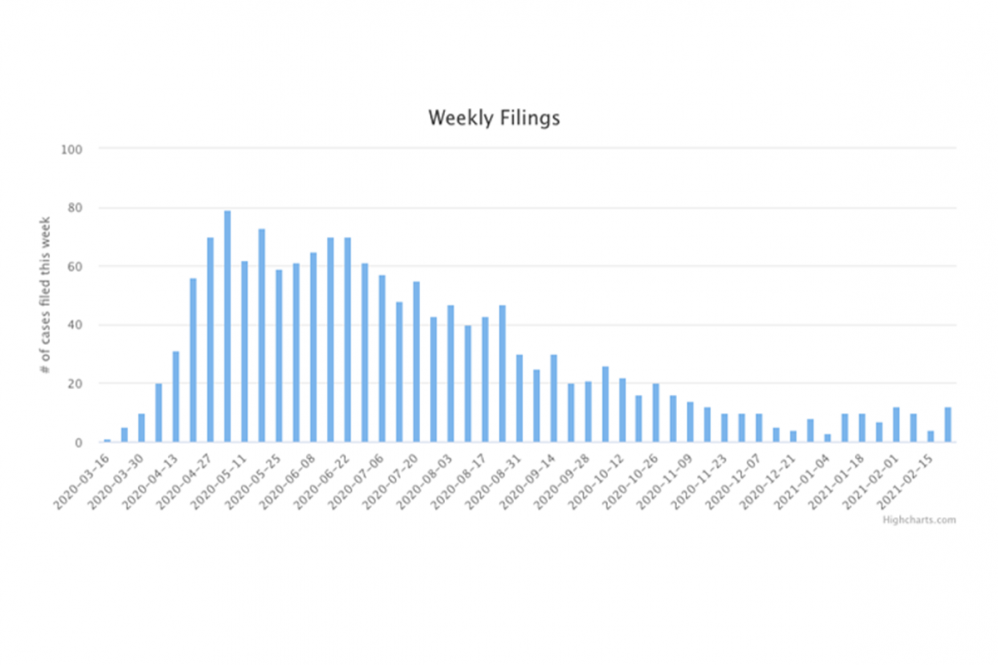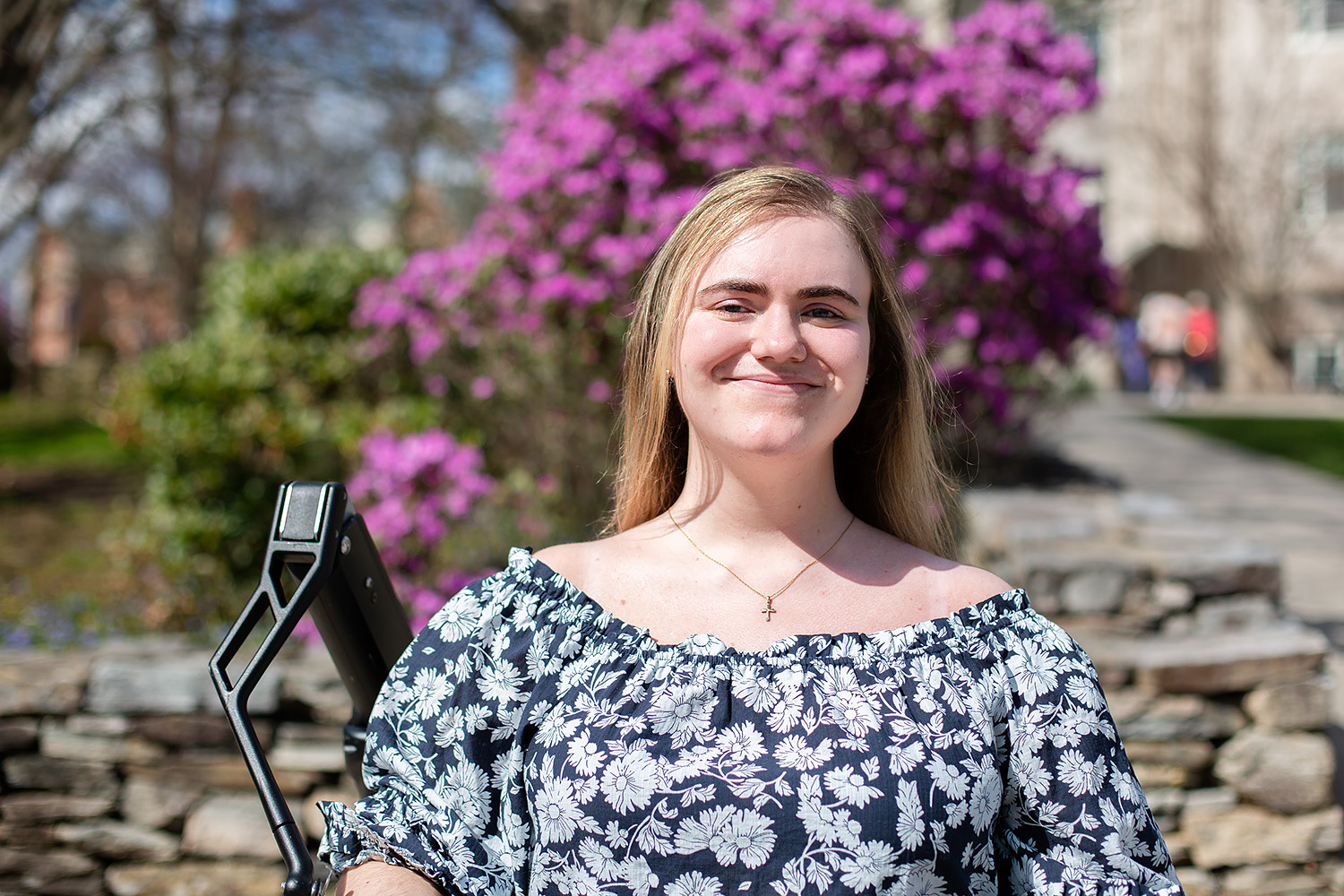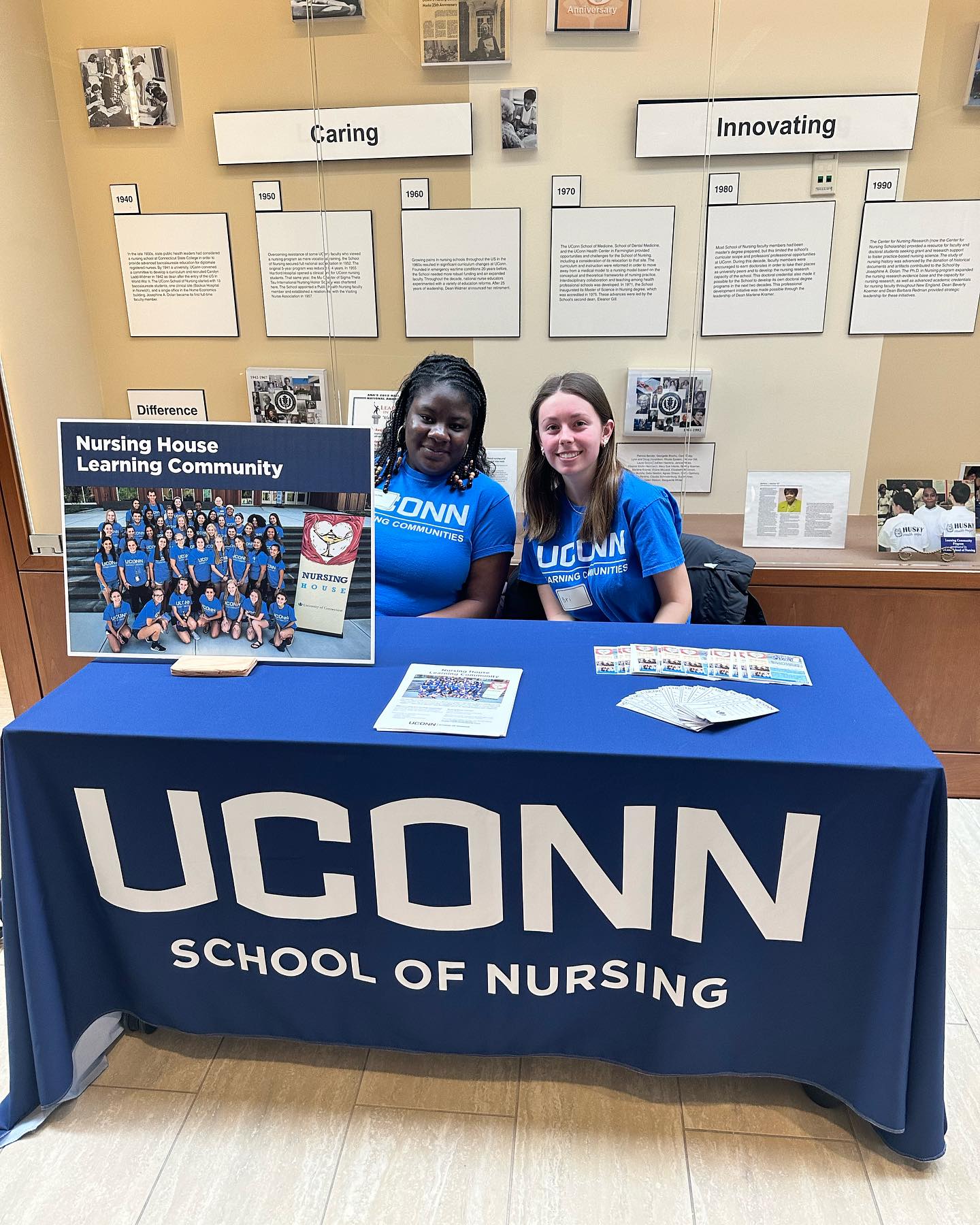The COVID-19 pandemic has unleashed a flood of lawsuits by businesses trying to force insurers to cover virus-related losses. Figuring out what that means to the insurance industry and their policyholders requires a massive data collection effort, which is now under way with the help of four UConn Law students.
The students gather information about state and federal court cases, turning lawsuits filed by a podiatry practice in Pennsylvania or a nightclub in California into data for the Covid Coverage Litigation Tracker. Professor Tom Baker at the University of Pennsylvania Carey Law School conceived and manages the tracker, which is co-sponsored by the Insurance Law Center at the UConn School of Law. His goal is to record the pandemic’s unique case law and provide the data that scholars, practitioners, and historians will need to analyze the litigation.
UConn Law students Victoria James ’22, Lauren Elia ’23, Adam Zwick ’22, and Robert Eagan ’22, work with four students from the Carey Law School to maintain and update the tracker with new filings. The UConn students track federal court filings, while the Carey students handle state filings.
The data the students enter follows the cases from initial complaints to ultimate resolutions, breaking them into categories and listing the law firms representing the plaintiffs. Charts and lists show the most frequently sued insurers, whether the underlying policies involve a virus exclusion, and what industries the plaintiffs represent. So far, bars, restaurants, and related business have made up the largest share of those filing suit.
James has been putting 15 hours a week into the project since August 2020, and says the experience has been intellectually rewarding and enjoyable. She has fallen into a routine of spending a few hours each night working on the tracker, a perfect way to disconnect from her schoolwork.
“It’s been an unbelievably fun and grounding experience,” James says. “The work itself is stimulating and working with Professor Baker has been nothing short of amazing.”
Baker, who directed the Insurance Law Center at UConn Law from 1997 to 2008, was connected to the UConn Law students by Professor Peter Siegelman, now the center’s interim director.
Siegelman is thrilled the Insurance Law Center has been able to co-sponsor the project. The student workers, he says, are gaining invaluable insight into how litigation works in the real world.
“The students are getting a chance to work with Professor Baker, one of the country’s leading experts in insurance law,” Siegelman says. “And they’re learning a lot about nitty-gritty civil procedure issues with which they would otherwise not encounter until they got into practice.”
Baker has worked closely with James, the UConn Law student tasked with adding new complaints into the tracker. As the project has gained recognition, he and James have started a friendly competition over who will learn of new filings first. His information comes mainly through personal emails and hers through Google alerts.
“I can’t say enough about the phenomenal job these students have done in managing and maintaining this tracker,” Baker says. “A large amount of credit is due to UConn Law students, without whom this could not have been done.”



